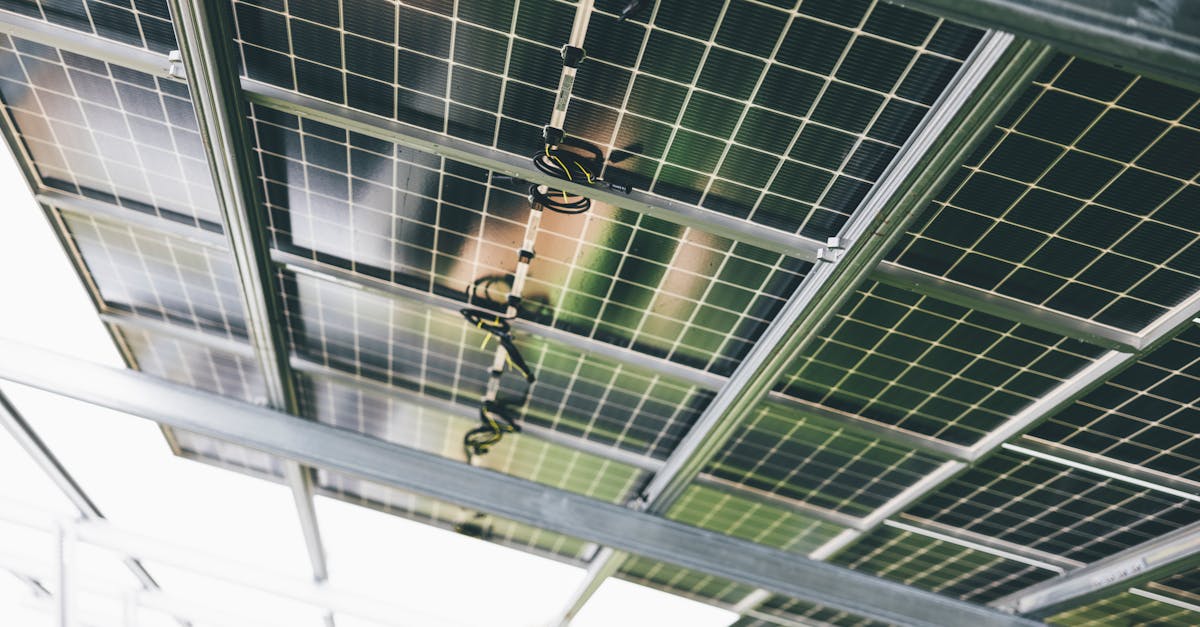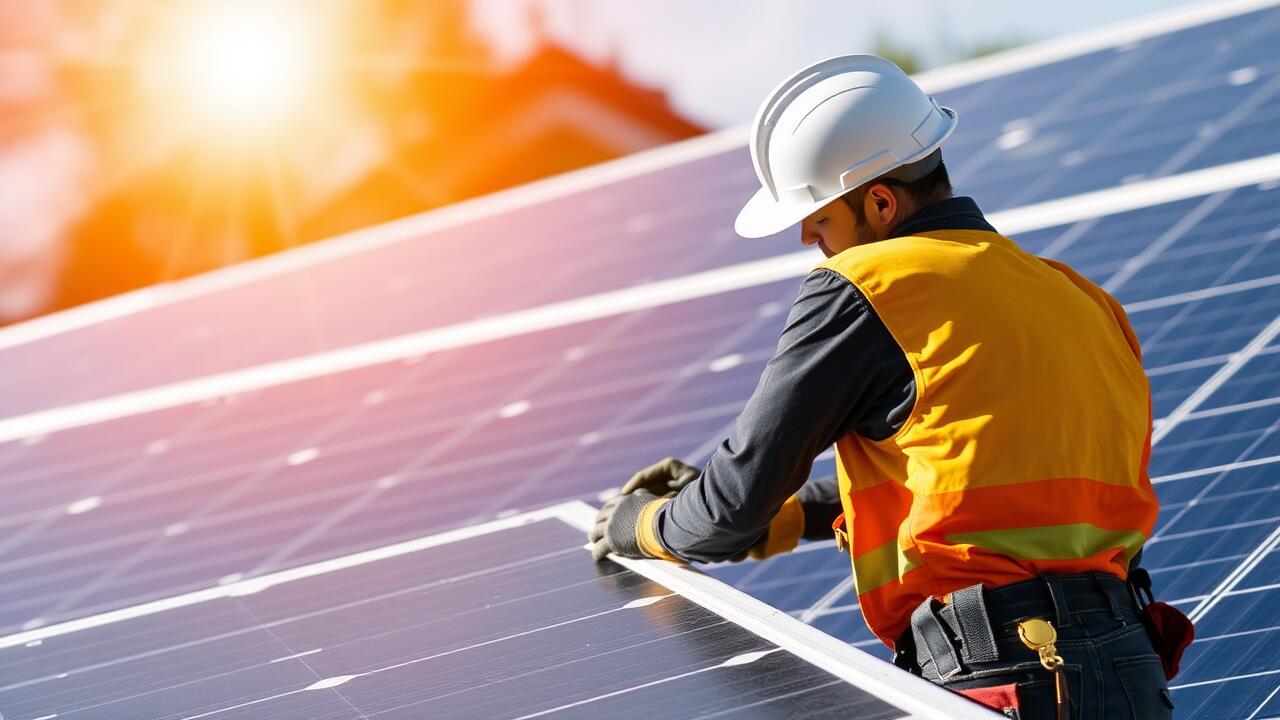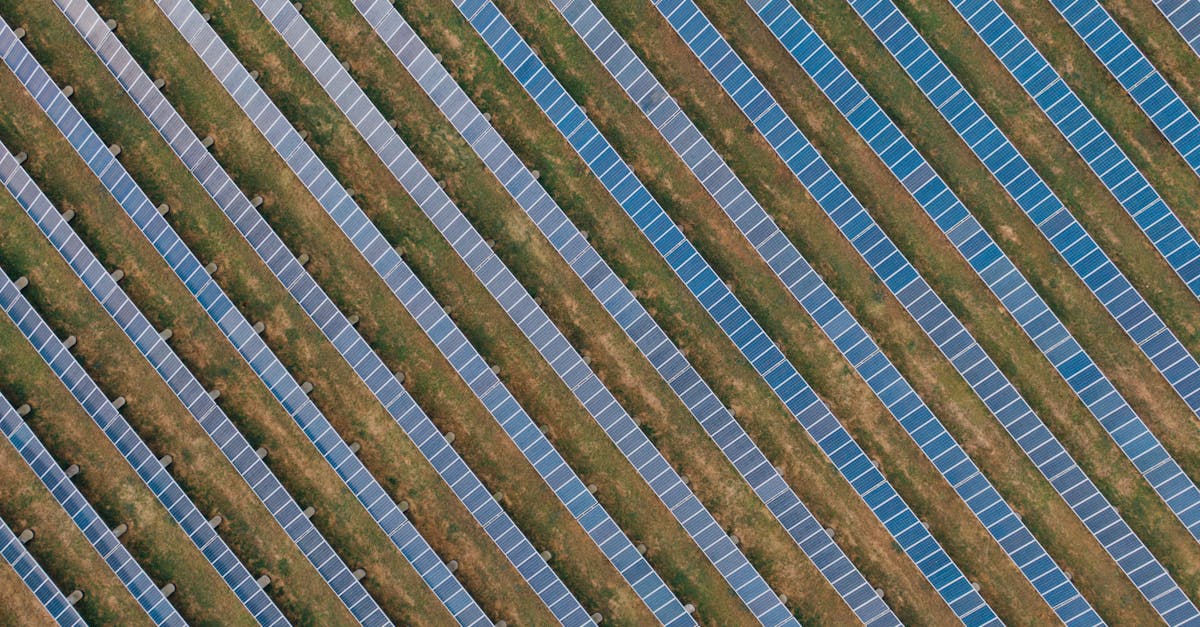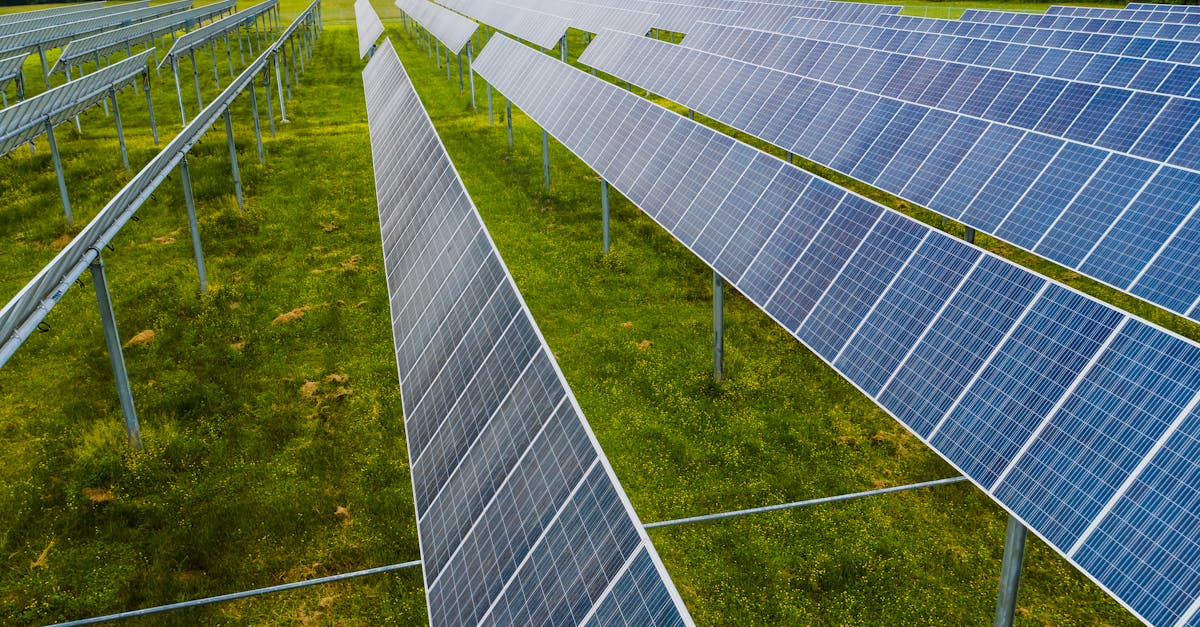
Evaluating Your Energy Needs
Evaluating your energy needs is a crucial first step when considering solar panel system upgrades. An increase in energy consumption, perhaps due to new appliances or changes in lifestyle, can significantly affect your solar requirements. Understanding these shifts allows you to determine if your current setup adequately meets your demands or if an upgrade is necessary for greater efficiency and reliability.
In addition to assessing current energy consumption, forecasting future needs is equally important. Anticipating potential expansions, such as adding electric vehicle charging capabilities or increasing home office usage, can inform your decision. A well-planned approach not only improves energy efficiency but also maximises the return on investment for solar panel system upgrades.
Changes in Household Consumption Patterns
Monitoring changes in household consumption patterns is essential when considering solar panel system upgrades. An increase in energy usage may stem from various sources, including the acquisition of new appliances or the addition of home office equipment. Families may also experience shifts in routine, such as more time spent at home due to hybrid work models. These factors can significantly influence the size and efficiency requirements of an existing solar panel system.
Conversely, some households may find their energy consumption decreasing, particularly if they have invested in energy-efficient appliances or engaged in energy-saving behaviours. It is crucial to assess these trends carefully to determine whether an upgrade is necessary. An evaluation of current and projected energy needs will help clarify if a larger system is warranted or if optimising the current installation is sufficient for future requirements.
Assessing Installer Reputation
When considering a Solar Panel System Upgrade, assessing the reputation of your installer is crucial. A reputable installer should have extensive experience in the industry, as well as a portfolio of successful projects. Online reviews and testimonials can provide insight into the quality of their work and customer service. It helps to seek recommendations from friends or neighbours who have previously undergone similar upgrades, as personal experiences often highlight the strengths and weaknesses of local contractors.
Certification and licensing also play a significant role in determining an installer's reliability. Qualified professionals ensure adherence to safety standards and regulations, which can prevent future issues. Investigating if the installer offers warranties on workmanship and equipment might further indicate their reliability. Overall, investing time in research can lead to a more satisfactory experience with your Solar Panel System Upgrade, ensuring that the system operates efficiently and effectively for years to come.
Importance of Choosing a Reliable Contractor
Choosing a reliable contractor is crucial when considering Solar Panel System Upgrades. The quality of installation directly impacts the performance and longevity of the panels, which in turn affects energy savings and overall investment value. A reputable contractor will provide a comprehensive service, from initial assessments to warranty options, ensuring that the upgraded system meets specific energy requirements while adhering to safety standards.
Researching contractor testimonials and checking for certifications can help identify trustworthy professionals. Engaging with local solar energy associations might also provide recommendations for qualified installers who understand regional regulations and incentives. A solid reputation can indicate a contractor's commitment to quality workmanship, which is essential for successful Solar Panel System Upgrades.
Local Incentives for Solar Upgrades
Local incentives for solar upgrades can significantly enhance the financial viability of investing in a new or improved solar panel system. Many regions offer various programmes designed to support homeowners in reducing the cost of installation. These can include grants provided by local councils, tax credits, or upfront rebates that make the transition to an upgraded system more affordable. Understanding the incentives available in your area can lead to considerable savings and facilitate a more sustainable energy solution for your home.
Government grants and rebates represent another avenue for funding solar panel system upgrades. Various initiatives are aimed at encouraging homeowners to enhance their energy efficiency while simultaneously reducing reliance on non-renewable energy sources. By researching available options, homeowners can discover financial assistance that aligns with their solar upgrade plans. These incentives may also vary depending on the size of the system being installed or the level of energy savings anticipated, making it essential to evaluate all possibilities before proceeding with upgrades.
Government Grants and Rebates Available
Individuals considering Solar Panel System Upgrades should explore the variety of government grants and rebates available. These financial incentives can significantly reduce the upfront costs associated with upgrading to more efficient solar technologies. Depending on your location, various programmes might offer funding assistance or tax credits that can enhance the return on investment for such improvements. Staying informed about these opportunities ensures you make the most of available resources.
In addition to national programmes, many local governments and utilities provide specific support for renewable energy enhancements. These may include cash rebates, performance-based incentives, or low-interest financing options aimed at encouraging solar adoption. Researching these local offers is essential, as they can vary widely and potentially provide a substantial boost to your project's overall affordability.
FAQS
How do I determine if my current solar panels need upgrading?
To determine if your current solar panels need upgrading, evaluate your energy needs, consider changes in household consumption patterns, and assess the performance and efficiency of your existing panels. If you find that your energy output is significantly lower than expected or your energy bills are rising despite solar use, it may be time to consider an upgrade.
What factors should I consider when assessing my energy needs?
When assessing your energy needs, consider changes in household consumption patterns such as increased use of electrical appliances, the addition of new family members, or any energy efficiency improvements in your home. Additionally, evaluate seasonal variations in energy demand.
Why is it important to choose a reliable contractor for solar panel upgrades?
Choosing a reliable contractor is crucial as it ensures that the installation is carried out correctly and efficiently. A reputable contractor will have a proven track record, offer quality products, and provide warranties and after-sales support, which can significantly impact the performance and longevity of your upgraded solar system.
Are there any local incentives available for upgrading my solar panels?
Yes, many local governments and organisations offer incentives such as grants, rebates, and tax credits for solar panel upgrades. These can significantly reduce the overall cost of the upgrade, making it a more financially viable option.
How can I find out about government grants and rebates for solar upgrades?
To find out about government grants and rebates for solar upgrades, check with your local government’s energy department or visit official websites dedicated to renewable energy. Additionally, consulting with a solar contractor who is knowledgeable about available incentives can provide valuable information tailored to your area.


